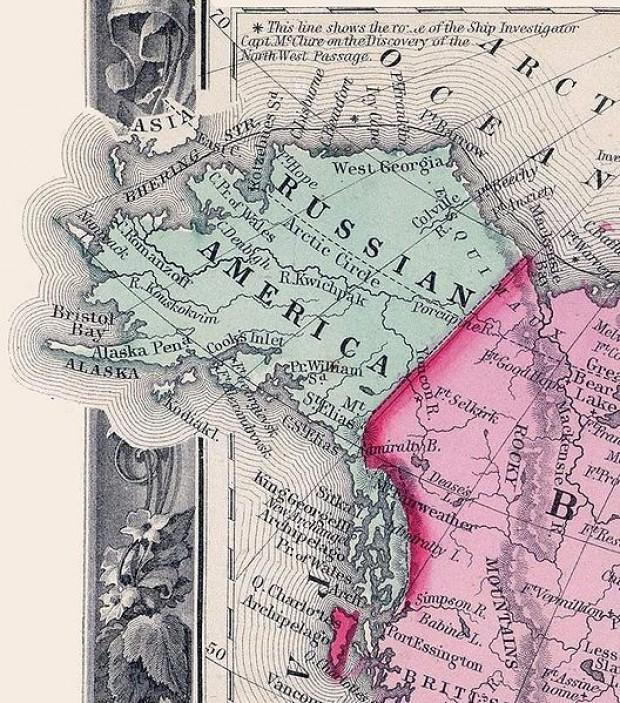A Rare Dialect Spoken in Alaska
(Credit: Wiki Media)
We’re taking you up to Alaska for Tuesday’s Geo Quiz.
Alaska has been one of our 50 states since 1959.
But before that, other nations had claims on the territory.
Spain was one.
You can hear some Spanish influence in some of Alaska’s place names today.
But it was a different nation that had a larger colonial presence there.
And it was from that country that the United States purchased Alaska in 1867.
Price tag: 7.2 million dollars.
So, quick: who did we buy Alaska from?
The answer is Russia.
In the summer of 1997 Russian Linguist Mira Bergelson and her husband also a linguist were in Alaska studying an Alaskan native dialect when she got a strange email.
A group of Native Alaskans wanted her and her husband to come and check out their language that they were desperately trying to save before the few remaining speakers passed on.
Intrigued, Bergelson and her husband and met with folks from this village and discovered their language was not a rare native dialect at all, it was a Russian.
But a version of Russian that had been frozen, you might say, up in the cold Alaska wilderness for nearly a century.
The language that Bergelson found was a hybrid of both native words, Russian words and even English. You might even recognize one of them.
“There is a Ninilchik Russian word for kid, it is babychika,” says Bergelson. “It is made from baby but it is with Russian suffix.”
But the influence from Alaska’s Russian past goes beyond language. Bergelson saw Russianisms everywhere she looked from how people drink tea in the Russian style to Russian-like love for singing.
In fact it was that Russian love of singing that helped Bergelson ingratiate herself with the few Russian speakers left in the community.
It had been many years since many had spoken the language — many speakers are in their 80s and 90s — and they were suspicious of Bergelson’s motivation. However, when her children began to sing a traditional Russian song, she saw tears among these last Russian Ninilchik speakers.
The story you just read is accessible and free to all because thousands of listeners and readers contribute to our nonprofit newsroom. We go deep to bring you the human-centered international reporting that you know you can trust. To do this work and to do it well, we rely on the support of our listeners. If you appreciated our coverage this year, if there was a story that made you pause or a song that moved you, would you consider making a gift to sustain our work through 2024 and beyond?
